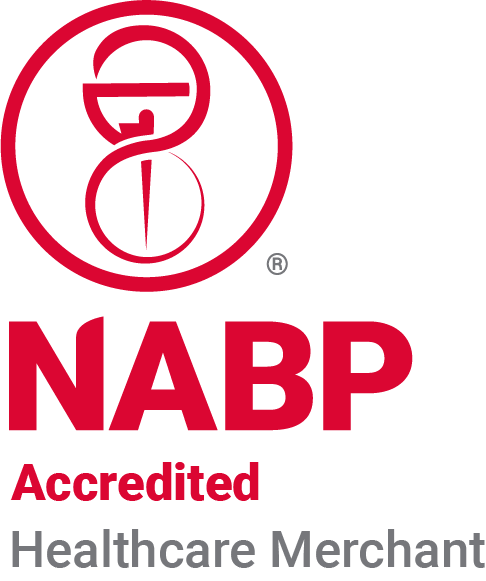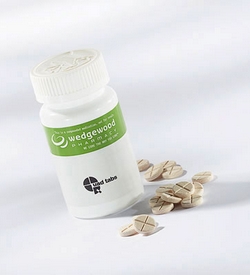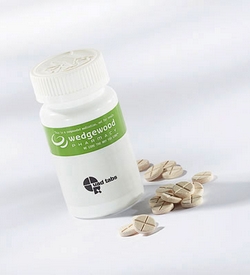Providing Quality & Trust
Penicillamine Quad Tab
Wedgewood Pharmacy
$107.30 - $123.95
$107.30 Each
Detailed Description
Penicillamine Quad Tab
Penicillamine Quad Tab
Prescribed For: Cats, Dogs and Ferrets
May be Prescribed For: Heavy Metal Poisoning
Penicillamine may be prescribed for:
- Heavy Metal Poisoning
Prescribed For:
- Cats
- Dogs
- Ferrets
It’s a snap! Quad tabs® are scored twice for maximum flexibility in dosing and dispensing. Precision scoring makes it easy to snap-off a half or quarter tablet with ease.
1 strength of Penicillamine Quad Tab are available in 250 mg/tab.
Contraindications/Precautions/Warnings:
Penicillamine is contraindicated in patients with a history of penicillin hypersensitivity or penicillamine-related blood dyscrasias. Penicillamine potentially can cause enhanced absorption of lead from the gastrointestinal tract. If lead is still present in the gut, it should not be administered. Avoid use in patients with renal insufficiency.
Adverse Effects:
In dogs, the most prevalent adverse effects associated with penicillamine are:
- Nausea, vomiting, and depression. While penicillamine should be given on an empty stomach (at least 30 minutes before feeding), if the animal develops problems with vomiting or anorexia, four remedies have been suggested:
1)Give the same total daily dose, but divide into smaller individual doses and give more frequently.
2)Temporarily reduce the daily dose and gradually increase to recommended dosage.
3)Give a long-acting antiemetic one-hour before dosing.
4)Give with a small amount of food (eg, fruit puree, cheese, or bread) if one of the first three do not alleviate vomiting.
- Although thought infrequent or rare, fever, lymphadenopathy, skin hypersensitivity reactions, or immune-complex glomerulonephropathy may occur. Adverse hematologic effects have been reported in humans (see Contraindications), and a case of hemolytic anemia in a cat has been reported.
- Penicillamine can reduce GI dietary mineral (zinc, iron, copper, and calcium) absorption and cause deficiencies with long-term use. Pyridoxine deficient states may occur; supplementation advised.
- Interference with collagen and elastin production may lead to increased skin friability and impaired wound healing.
Drug Interactions:
The following drug interactions have either been reported or are theoretical in humans or animals receiving penicillamine and may be of significance in veterinary patients. Unless otherwise noted, use together is not necessarily contraindicated, but weigh the potential risks and perform additional monitoring when appropriate.
- 4-AMINOQUINOLINE DRUGS (eg, chloroquine, quinacrine): Concomitant administration with these agents may increase the risks for severe dermatologic adverse effects.
- CATIONS, ORAL including ZINC, IRON, CALCIUM, & MAGNESIUM: May decrease the effectiveness of penicillamine if given orally together. Long-term use of penicillamine may induce deficient states.
- FOOD, ANTACIDS: The amount of penicillamine absorbed from the GI tract may be significantly reduced by the concurrent administration of food or antacids.
- GOLD COMPOUNDS: May increase the risk of hematologic and/or renal adverse reactions.
- IMMUNOSUPPRESSANT DRUGS (eg, cyclophosphamide, azathioprine, but not corticosteroids): May increase the risk of hematologic and/or renal adverse reactions.
- PHENYLBUTAZONE: May increase the risk of hematologic and/or renal adverse reactions.
- PYRIDOXINE: Penicillamine may induce deficient states. Supplementation is advised in human patients.

Powered by nopCommerce
This site is running in live payment mode. Real payments will be processed.

